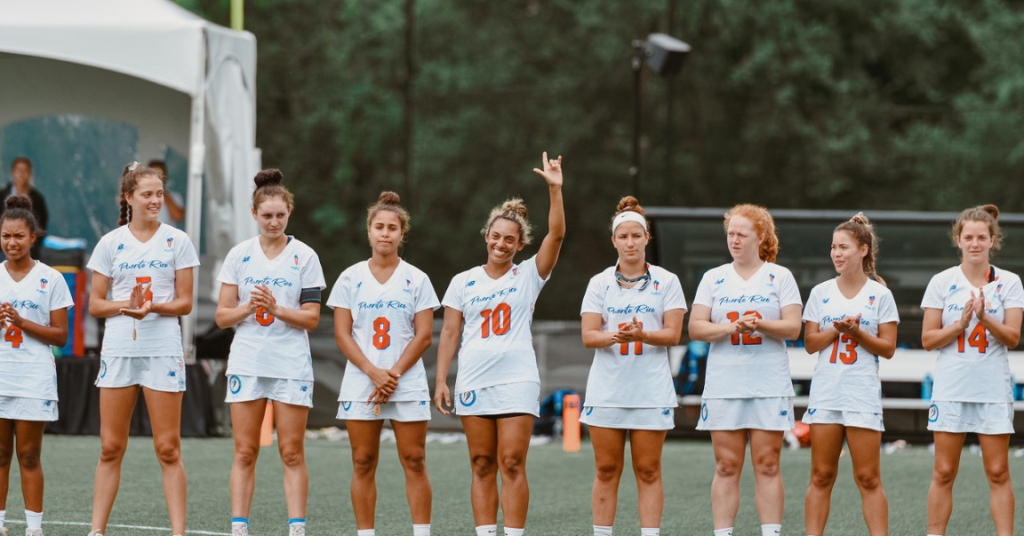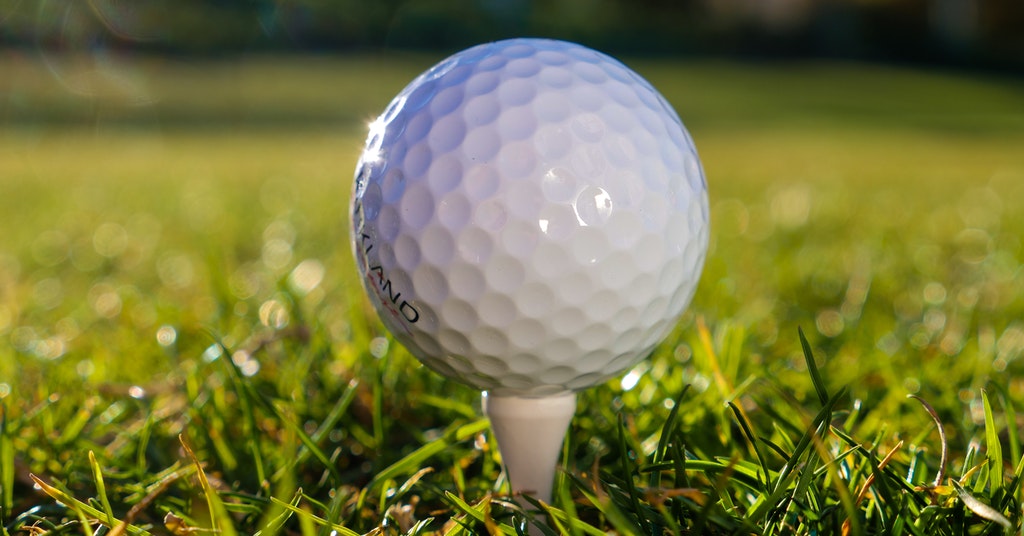
Coldplay’s concerts now more accessible for the deaf community
November 28, 2022Vasculitis Disease and Hearing Loss
December 5, 2022Hearing loss, athletics, and mental health

Bianca Diaz is a professional lacrosse player with hearing loss. As a professional athlete, she has had to navigate athletics, hearing loss, and mental health. This past summer, she played for the Puerto Rico Women’s National Lacrosse Team at Worlds. Her parents are both from Puerto Rico, so she was able to participate. Diaz speaks highly of her coaches and teammates, and state that they are her “biggest cheerleaders.”
Hearing Loss
Diaz, 32, who currently resides in Weston, FL, was born with a genetic sensorineural hearing loss. As a young child, she started having multiple ear infections which led to tubes in her ears. A blood test confirmed that it was a genetic condition. Her hearing continued to decline slowly but steadily. It was hard to hear in college courses, even with hearing aids. In 2018, Diaz was in a jet ski accident that caused her entire right eardrum to rupture. Even after having six total surgeries on her ears, Diaz continues to push towards a meaningful life.
From High School Lacrosse to Worlds
In Diaz’s childhood home, her parents had the rule that each child must be involved in a sport. Even after trying many different ones ranging from tennis, soccer, to track, Diaz never really loved those sports. However, when a lacrosse team was formed in her high school, she gave it a try. That was when she fell in love with lacrosse.
Diaz then went to the University of Central Florida and played lacrosse for their college team. After graduating, she coached for 12 years. She then heard about the opportunity to try out for the Puerto Rican National team. Last June they competed in Worlds, and they placed 11th out of 30 in their inaugural year.
Diaz’s Letter
Recently, Diaz posted an open letter to her teammates. In it, she highlighted her appreciation for their understanding of her hearing loss. The letter starts: “Thank you for accepting me as I am and lifting me up during the times I couldn’t. National Deaf Awareness month overlaps National Hispanic Heritage month which also overlaps Mental Health Illness week and I have been contemplating a lot leading up to all of these dates on how to continue my story…”
Diaz then addresses all three issues: deafness, her heritage, and mental illness. She talks about how listening fatigue affected her play and broke her confidence. She vows to fight through and “create ways for this sport that has given me so much to become just as inclusive to people like me.”
Diaz ends by writing, “This is the next step in my journey; to make an impact on the lacrosse community and how we can improve it for those who don’t have the accessibility for inclusiveness. To stand up for athletes with hearing loss and other disabilities. And that starts with sharing my story.”
Advocacy in Sports
As an advocate, Diaz shares her advice to other athletes with hearing loss. She says to be transparent. Hearing loss is an invisible disability. Sometimes it’s hard to voice what you need because you don’t want to be a burden. All of Diaz’s coaches and teammates know about her hearing loss. They make sure she’s able to hear them. She also lets the referees know at the beginning of the game.
Diaz also recommends learning other tactics that can help you play to your fullest potential. She prefers to play low defense because she can clearly hear the goalie call out where the ball is. She also practices in a way that allows her to use her other skills as strengths. This means working harder on her reflexes and being able to react to situations quicker. That way, if she can’t hear, she is able to react and respond.
Diaz’s team recognizes that she deserves to be on that field with them. Having a team on her side has enabled her to voice her thoughts when she is struggling.
Read more: How disability advocacy helped me learn self-advocacy
Mental Health and Hearing Loss
“I believe that there is power in telling your story to the world,” Diaz says. “I used to be so scared to let people know that I had a disability because I thought it made me weak. This caused a lot of anxiety in my life and my sense of self-worth took a turn for the worst.”
“I believe that there is power in telling your story to the world.”
During the COVID crisis, Diaz said, “I would get extremely frustrated that I couldn’t hear something or that I missed out on a part of the conversation and that put me in a very depressive state, especially during COVID. The struggle of masks was something that really made it hard for me to feel like I belonged.”
As someone who is an advocate for Mental Health, Diaz reminds people that it is okay to feel alone sometimes. She advises people to rest and give themself space to process. Her journey has taught her to accept her hearing loss. “I think we put so much weight on ourselves to have to fit into the hearing world, that sometimes we need to understand that this is who we are and in turn, the world has to accept us how we are.” Therapy is an important piece of her life, along with her support system. “Getting the therapy you need to better your everyday life is not something you should be ashamed of, especially if you sometimes need that extra help,” she says.
Be Open About Your Hearing Loss
Diaz encourages those with hearing loss to continue to be open with their hearing needs to help others be inclusive. When she feels anxious or down because of her hearing loss, she reflects on how far she has come. She also has seen how her story is able to positively influence others.
“After going through therapy and using the power of social media to find resources to help me through this, I was able to own who I was… hearing loss and all,” she says. “I then realized that me having hearing loss was a side journey, it was who I was and that it wasn’t a crutch, it was just a different way of life.”
Diaz also shows her deep appreciation for those who have uplifted her during those hard moments.
“I also think about all the times friends were there for me, holding my hand as I would get not so great news about my ears, how my mom randomly will learn a new word in sign language, and how patient my teachers and coworkers would be when I would ask them to repeat themselves over and over again,” she says. “There will be times where you won’t be able to lift yourself up; and that’s okay. Surround yourself with people who will be there for you when you can’t.”
Her last bits of advice: “Never hide that you are weak. Show them how strong enough you are to overcome.”
Read more: Study: The impact of hearing loss on mental health



